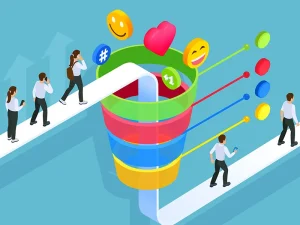In today’s digital world, social media platforms may dominate the marketing scene, but email marketing is still a force to be reckoned with. In fact, with the rise of online communication, email has become more critical than ever before. With its direct and personal approach, emails can help businesses connect with their customers on a deeper level and drive results that social media alone cannot achieve, so if you’re wondering whether an email is still relevant in 2023.

Introduction: Email vs. Social Media: Why Email is Still Relevant?
The debate over which is better for marketing, email or social media, has been around for a while. And there are pros and cons to both. But we’re here to talk about why email is still relevant in today’s day and age.
First, let’s start with a bit of history. Email was first created in the 1970s, and it was in the 1990s it became widely used by the general population. In contrast, social media sites like Facebook and Twitter emerged in the 2000s. So, email has been around for a lot longer than social media.
And its long history is one of the reasons why email is still relevant today. Because it’s an established form of communication that people are comfortable using, it will be around for a while.
Another reason email is still relevant is that it offers a more personal form of communication than social media does. When you send an email, you can address the recipient by name and write a personalized message. Social media broadcasts your messages to all your followers simultaneously and are less personal.
Email is still relevant because it gives you more control over your messages than social media does. With email, you can choose who you want to receive your news and when they receive it. You can also track how many people open your emails and click.
Advantages of Using Email Marketing
Email marketing has plenty of advantages over social media. For one, email allows you to reach a wider audience than social media does. Email is also less intrusive than social media, so your messages are more likely to be read and acted upon. And, because email addresses are typically associated with a person’s name, you can target your messages more effectively than with social media.
Another advantage of email marketing is that it’s more flexible than social media. You can send messages of any length with email, including rich media such as images, videos, and attachments. The short message format of social media posts does not limit you.
And finally, email marketing is more affordable than most other marketing channels. It doesn’t require a large budget to get started, and you can scale your efforts up or down as needed without breaking the bank.
Disadvantages of Using Email Marketing
In many ways, email marketing can be less effective than other marketing channels like social media. First, standing out in someone’s inbox can be challenging, especially if they are already inundated with emails from other companies and organizations. It can also be hard to track the ROI of email marketing campaigns since clicks and conversions can happen off-site. Additionally, email marketing can have lower open rates than social media and is more susceptible to being marked as spam. Despite these challenges, email marketing can still be a powerful tool when used strategically.
Benefits of Using Email Marketing
Email marketing is a direct form of communication with your audience. It allows you to build relationships with your customers and followers by providing them with practical, relevant information.
Email marketing is also an excellent way to promote your brand and sell products or services. Email marketing can drive traffic to your website or blog and increase sales.
Email marketing is a cost-effective way to reach a large number of people. It is also one of the most effective ways to communicate your message.
Tips for Effective Email Campaigns and Sequences
Email campaigns and sequences can be an effective way to reach your target audience. Here are a few tips to keep in mind when creating your campaign:
1. Keep your subject line short and to the point.
2. Ensure your email content is relevant and exciting to your audience.
3. Personalize your emails whenever possible.
4. Avoid using too many images or excessively long paragraphs of text.
5. Use strong calls to action to encourage recipients to take the desired action.
Use Cases of Email in E-commerce, Entertainment, and Other Industries
Email is still relevant in e-commerce, entertainment, and other industries for various reasons. For example, email can communicate special offers or promotions to customers, announce new products or services, or update order status or shipping. In the entertainment industry, email can be used to keep fans updated on new releases, tour dates, or sneak previews. And in other sectors, email can be used for everything from customer service inquiries to follow-up after-sales meetings.
Conclusion: What Does the Future Hold for Email?
It’s no secret that social media has taken over as the primary method of communication for many people. But that doesn’t mean email is dead. Email marketing is still alive and well, growing in popularity.
Why? Because email is personal. It’s a one-to-one communication that allows you to reach your audience directly in their inboxes. And contrary to popular belief, people check their emails regularly (especially if they’ve signed up to receive messages from you).
So, wait to write off email marketing! It may not be the newest or most exciting marketing method, but it’s still incredibly effective.



